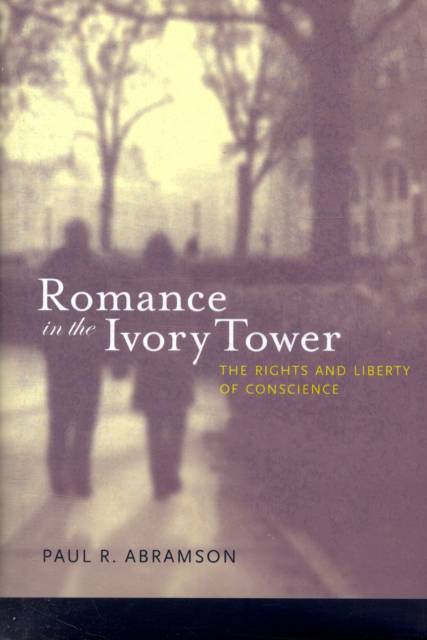
- Retrait gratuit dans votre magasin Club
- 7.000.000 titres dans notre catalogue
- Payer en toute sécurité
- Toujours un magasin près de chez vous
- Retrait gratuit dans votre magasin Club
- 7.000.0000 titres dans notre catalogue
- Payer en toute sécurité
- Toujours un magasin près de chez vous
Description
Should the choice to engage in a faculty-student romance be protected or precluded? An argument that the right to choose a romantic partner is a fundamental right of conscience, protected by the U.S Constitution.
Allen Ginsberg once declared that "the best teaching is done in bed," but most university administrators would presumably disagree. Many universities prohibit romantic relationships between faculty members and students, and professors who transgress are usually out of a job. In Romance in the Ivory Tower, Paul Abramson takes aim at university policies that forbid relationships between faculty members and students. He argues provocatively that the issue of faculty-student romances transcends the seemingly trivial matter of who sleeps with whom and engages our fundamental constitutional rights. By what authority, Abramson asks, did the university become the arbiter of romantic etiquette among consenting adults? Do we, as consenting adults, have a constitutional right to make intimate choices as long as they do not cause harm? Abramson contends that we do, and bases this claim on two arguments. He suggests that the Ninth Amendment (which states that the Constitution's enumeration of certain rights should not be construed to deny others) protects the "right to romance." And, more provocatively, he argues that the "right to romance" is a fundamental right of conscience--as are freedom of speech and freedom of religion. Campus romances happen. The important question is not whether they should be encouraged or prohibited but whether the choice to engage in such a relationship should be protected or precluded. Abramson argues ringingly that our freedom to make choices--to worship, make a political speech, or fall in love--is fundamental. Rules forbidding faculty-student romances are not only unconstitutional but set dangerous precedents for further intrusion into rights of privacy and conscience.
Spécifications
Parties prenantes
- Auteur(s) :
- Editeur:
Contenu
- Nombre de pages :
- 172
- Langue:
- Anglais
- Collection :
Caractéristiques
- EAN:
- 9780262012379
- Date de parution :
- 01-10-07
- Format:
- Livre relié
- Format numérique:
- Genaaid
- Dimensions :
- 147 mm x 207 mm
- Poids :
- 312 g

Les avis
Nous publions uniquement les avis qui respectent les conditions requises. Consultez nos conditions pour les avis.






